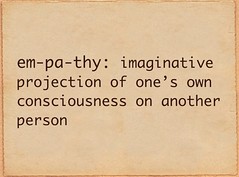(This letter has been edited by
Madilyn Leonard Benrubi, a blogger friend of mine. A big THANKS to her!)
This letter has been sent to:
UNICEF(The United Nations Children's Fund, http://unicef.org/
) ;
ISPCAN (International Society For Prevention Of Child Abuse and Neglect, http://www.ispcan.org/) ;
IICRD (The International Institute for Child Rights and Development , http://www.iicrd.org/);
(Caution! The case examples are extremely disturbing!)
Dear Sir or Madam,
I am writing this letter to call your attention to the family child abuse situation in China.
Family child abuse in China has been a serious social problem and it has never been confronted by Chinese society and government. During the recent couple of decades, while China enjoys its economy rising, its spiritual side seems to be more corrupted than ever. Children, the most vulnerable group among the Chinese population, become the worst victims of this moral degeneration.
Here are several severe case examples:
Case 1: 1993, Xining, Qinghai province. Li Su, a 5 year-old tortured to death by her biological mother.
 |
A photo of Li Su sitting in a hospital
bed when she was alive.
|
1993, in Xining (西宁市), Qinghai province (青海省) of China, a 5- year-old girl was tortured to death by her biological mother. Her name was Li Su (苏丽). During her short life, Li had suffered all kinds of mental and physical abuses, including verbal abuse, savage beatings, and starving. More horrendously, more than once, Li's mouth was sewn together with needle and thread. One day when Li was five-years-old, due to tremendous hunger, she begged for food, but what her “mother” did was feed her with hot boiling cooking oil. After this astonishing torture, the “mother” did not send her daughter to the hospital; instead, she continued physically abusing her for several days, until Li finally died of unimaginable pain.
Li Su's mother, Zhiyun Yan, served only 7 years in prison. Now she is a free woman. She destroyed her daughter's tomb after she got out of jail.
http://pilosopogyno.tumblr.com/post/49071586334
Case 2: 2013, Nanjing, Jiangsu province. Two baby girls were left in a locked home for over 100 days and staved to death.
June 2013, in the city of Nanjing (南京市), Jiangsu province (江苏省) of China, two girls, ages one and three years old, were left alone at home for over 100 days and starved to death, due to completely incapable and irresponsible mothering. The case is still being investigated.
http://roll.sohu.com/20130628/n380124741.shtml
Case 3: 2013, Jinsha county, Guizhou province. A young girl has been brutally tortured by her biological father for over five years.
 |
"Little Li"'s head was scalded by boiling
water. She was held upside down by
her father while her head was put inside
boiling water. Father claimed that he was
only trying to wash her hair.
|
July 2013, in Jinsha county (金沙县), Guizhou province (贵州) of China, a man was arrested for brutally torturing his 11-year-old daughter “Little Li” for 5 years, including pouring boiling water over her head, sewing her mouth together, using needles to prick her fingers, etc. The girl suffers tremendous physical and mental trauma.
http://news.sina.com.cn/s/p/2013-05-12/175827099753.shtml
 |
| All fingers were pricked by needles. |
Case 4: 2013, Shuicheng county, Guizhou province. A 12-year-old girl was tortured by her parents for years. She escaped after being branded with a red-hot iron rod all over her body (including genital area) by her mother, but was sent back to her parents by police.
 |
| Xiaoyan in hospital. |
In 2013, in Shuicheng county (水城县), Guizhou province (贵州省) of China, a 12- year-old girl “Xiao Yan” (晓燕)escaped from “home” after her body was branded literally all over with a red-hot fire rod by her parents – mostly her mother. Several days later she ended up at a local police department. After Xiao Yan's father handed a “letter of repentance” to police, Xiao Yan was sent back to her parents. Soon she escaped again due to her parents' continuing physical tortures. This time her parents were arrested and Xiao Yan is allegedly under hospital care.
http://learning.sohu.com/20130126/n364688803.shtml
 |
| Branding wounds all over Xiao Yans' body. |
 |
The wounds on her legs. Some of them are
deep enough to show the bones.
|
Case 5: 2012, Bijie, Guizhou province. A 6 year-old girl was tortured by her parents with various brutal methods.
2012, in Bijie (毕节), Guizhou province (贵州省) of China, a 6-year-old girl, Ting Ting (婷婷)was found astonishingly abused by her parents, torture methods included kneeling on a nailboard, slashing with iron wire, branding with a hot iron rod, etc.
http://tieba.baidu.com/p/2002957291?see_lz=1
 |
| Branding wounds on Ting Ting's body. |
 |
The stove used to prepare hot rod that
were used to brand Ting Ting.
|
Case 6: 2013, Nanjing, Jiangsu province. A group of young girls was forced to beg naked on the street.
2013, in Nanjing (南京), Jiangsu province (江苏省) of China, images of a group of young girls naked and begging on the streets stirred some attention online and soon, one of the girls was found by police. She was forced by her parents to go on the street begging naked to “earn” more money.
http://news.sina.com.cn/s/p/2013-07-04/173127578392.shtml
These are just a few samples that have been already exposed. We can reasonably imagine that there are many more similar crimes still hidden and ongoing. The real horror behind these astonishing crimes is not only how brutal they were, but also the fact that they were not committed underground. All these sample cases were more or less known to neighborhoods, condemned by some people even in the media, yet they were still not stopped. The first case (Li Su, 1993) was reported in newspapers several times, but Li Su was nonetheless left alone until she paid the ultimate price. All these examples reveal a fact, that child abuse, especially family child abuse in China is not well recognized by society and not effectively supervised and punished by the law. Children in China who suffer from family abuse are not properly protected, and we could even say, based on the cases above, those children were not protected at all.
Besides these types of extreme crimes, the relatively milder child abuse in China is much more “visible” and can be seen almost everywhere. Here are some statistics created in a research paper: Child abuse in China: a yet-to-be-acknowledged “social problem” in the Chinese Mainland, created in 2004, by D.P.Qiao and Y.C.Chan from Capital University of Economics and Business and Hong Kong Polytechnic University:
http://www.acad.polyu.edu.hk/~ssycchan/Child%20Abuse%20in%20China%201.pdf
“There are at present no national statistics on child abuse in China, but some survey data will throw light on the problem. In 2001, a national survey of 3543 married people conducted by the China Law Society showed that 71.9% of the interviewees reported to have had the experience of being beaten by their parents during their childhood (Liu & Zhang 2002). In Beijing, it has been found that 6 in 10 students had experienced physical punishment and disguised physical punishment from their teachers (Hao 1999). In a parallel study on primary students in China and Korea between 1998 and 1999, 70.6% of the Chines children had experienced family violence in the year preceding the study and the rates of corporal punishment by teachers were 51.1%.”
The seriousness of Child abuse in China has been ignored, covered, or disguised by both government and society, consciously or unconsciously, due to many complicated reasons, such as cultural tradition, nationalistic sentiment, politics, etc., and it certainly cannot be changed overnight. However, in this 21st century, I believe Chinese children need to be watched by all people in the world who are concerned about human rights, because a significant number of Chinese children are being treated as less than human beings (even less than animals), living in a dire situation that causes them unimaginable suffering. I sincerely hope that the international organization of UNICEF can make some effort in regard to this serious matter.
Thank you!
Sincerely,
Yun Yi
An ordinary Chinese American and a humanist











































